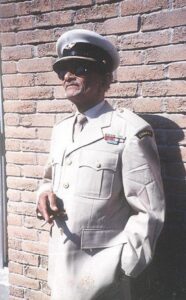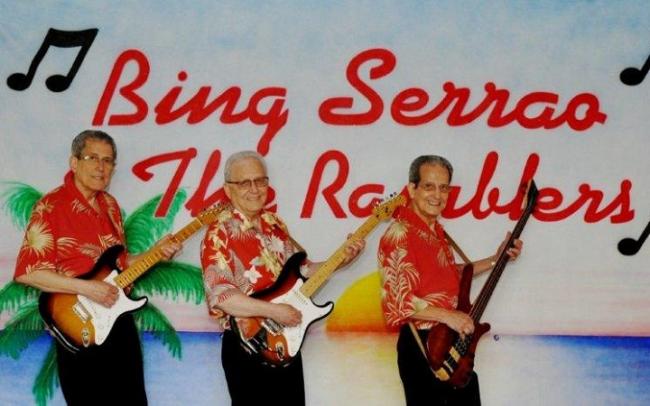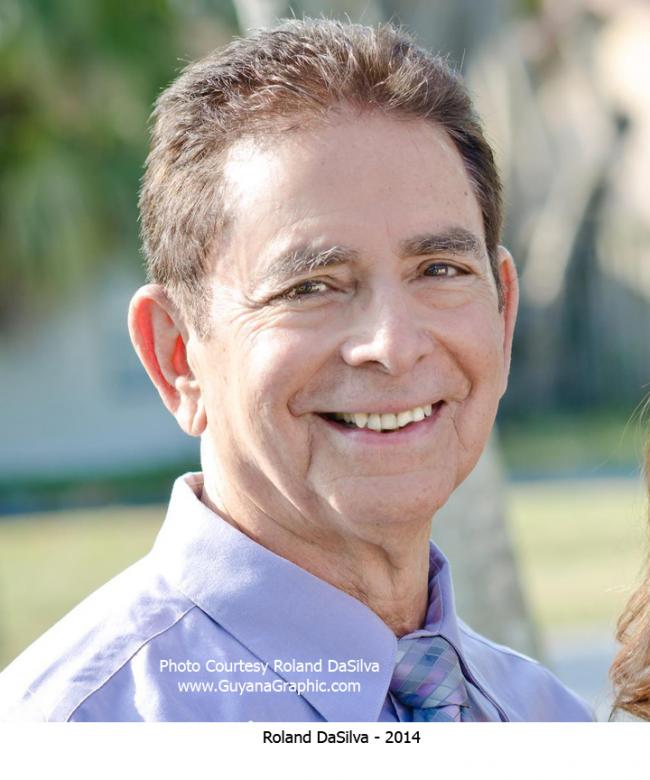
Legendary Guyanese comedian Habeeb Khan died earlier today at his home in Guyana. He was 78 years old.
Habeeb khan was born on June 15, 1936, one of seven children to “Dr. Khan and Indian and Pauline Geraldine Nurse an African/European” (Habeeb Khan)
He grew up in Queenstown, Georgetown and was the star in the popular Guyanese film “If Wishes Were Horses” along with Mignon Lowe and promoted by Vivian Lee,
Quote by Habeeb , “I am Guyanese, first and last, from here in Guyana to wherever I travel — Canada, USA or the Caribbean. I am Guyanese and proud to be a Guyanese.”
Article by the late Angela Osborne, published in Stabroek News on March 28, 2004
Star of If Wishes Were Horses and comedian extraordinaire, Habeeb Khan nevertheless insists that he’s a simple man who leads a simple life.
Interviewed by Sunday Stabroek at his Friendship, East Bank Demerara home, Khan said, “I live a simple life; on stage I am a comedian but off stage I just want to be me, a Guyanese. I am the product of a slave and an immigrant and I am very proud of my heritage. As we say in Creolese, ‘Me ain’t kay who black, who white, who pink, a nothing, once yuh born in Guyana, you is Guyanese and dat is me.'”
He described his home, (the interior walls and all the furnishings are blue, his favourite colour), as a humble little place which he had worked hard for. He lives there with his ninth wife, Doris (he is a Muslim, he said), and their youngest daughter, Felicia. Khan has fourteen children in all, which he puts down to the fact that he is the middle child of seven children. His oldest son, Habeeb Khan, Jr is almost 35-years-old and his youngest is ten.
He said that he would like to have more children, but his wife is not taking the hint. This minor setback aside, he credited all of his achievements to Doris: “She has been my inspiration and is the most sincere woman I know; when I had nothing she picked me up.”
Khan’s parents were Dr Khan, an Indian, and Pauline Geraldine Nurse, an African/European. He said he thought it was an accident his parents had met, but “of course in those days, love had no colour; it was a rainbow.”
He was a gift from God to them, he explained, and this is what his name meant – along with ‘court jester.’ His parents were told after their third child that they would never be able to have any more children, but he believed that because of the prayers of his brother, Barakat, he then came along.
The comedian declared himself proud of his Guyanese heritage, and said that based on the stories his parents had told him, he wished that Guyana could be the country it was when they were young, or what it was like when he was growing up.
Khan who was born on June 15, 1936 said his career as a comedian began from the moment he started crying after his birth. “My philosophy in life is that humour is the safety valve of piled-up emotions, and if you could laugh at a situation it can ease it.”
Recalling what steered him in the direction of comedy, Khan said that his childhood days were a bit complicated, and his father was “somewhat dictatorial; it wasn’t only that he was a cuss bird, because he liked to see things in the right place and if he came home and found it out of place, he would kick hell.”
Khan described how he would find himself imitating his father, and the elder Khan would then look at him and laugh. “One day when I was eight years old, my father was carrying on and I started imitating him, and my father asked me if he behaved liked that, and I said yes, I am exactly you. So he [his father] went on to ask why I was exactly him, and I responded by telling him, ‘like father like son.'”
Khan feels that parents should reach out to their kids, just like they would want their children to reach out to them. The wrong attitude, he said was the cause of his somewhat rebellious ways towards his parents. “My father had this way about him – of course that was in the colonial days – where he would say, ‘Come boy, ah calling yuh.’ Well those commands were not for me; you either call me ‘son’ or ‘please come.’ So one day, I remember him calling me and said ‘Come boy, you went and swim?’ and I said yes, that way I wouldn’t drown.”
Khan grew up in Queenstown, the only “half-black” man living in the area at that time. He went to a Roman Catholic Primary school, and then graduated to St Stanislaus College – though he doubts there are any records of that because he only spent two days there after they discovered he was a Muslim. He finished his education at Central High School. He said that it was after graduation that he discovered how beautiful nature was, because he had to be on his own.
School concerts were the stepping stone for Khan’s long career in comedy, and he has not looked back since. He has performed in the Caribbean, Canada and New York, remarking, “I have better waters overseas than in my own country, because my water here is too expensive, I have to pay for it.” He said that he can imitate seven languages, and is so good at it that he has managed to convince people that he was a national of several countries – in particular, India.
After all these years of performing, Khan said he is now recuperating from internal frustration. “Firstly, a lot of my work has been pirated, my tapes and my movie. Secondly, promoters in this country make millions and the performers and artistes are not respected; in most cases they [the performers] have to change in the toilets, and they are not offered any drinks.” Khan also feels that young comedians should try to be ambiguous and suggestive, and not come out plainly in four-letters words – “This is not America and people still enjoy wholesome comedy.”
Khan said that he was eternally grateful to Vivian Lee for recognising certain “commercial talents” in him, and that the promoter had taken the time (two years) to plan the movie If Wishes Were Horses. “Mignon Lowe who played my wife [in the film] was a fantastic actress, and my only regret is that my movie had no sex and I was very young.”
In his younger days, Khan also worked at D’Aguiar’s, sorting bottles. He did this for one week and was then promoted to supervisor. He also worked at the Venezuelan Consulate, in the gold fields as a “coolie” and as a stevedore on a trawler. Khan told Sunday Stabroek that he enjoyed cooking, and he put on weight whenever he cooked because the first man in the pot was always him.
For the past eight years he has been performing at the Sheriff Night Club’s Cabaret Show on Tuesday nights. Khan described its proprietor, David Bacchus, as an exceptional person who understood his business and his people. The comedian also does radio and television voices, and appears in advertisements.
After losing his place in Georgetown, Khan moved to a more rural location, and has been living there for the past fifty years. Commenting on life in the country, Khan said, “There is a unity between races in the country that must be admired. We are losing ethnic qualities, there is no pure Guyanese. We got to come together and erase this racial animosity; unless this is done we will… stagnate.”
“This year I will be sixty-eight and don’t regret being what I am. I consider myself… one of the chosen ones, and would never judge the quality of a man by the colour of his skin. Love is the sharpest sword against hatred; I am not Christ but I am part of him, I love my people, I love my country and the rest of them can kiss my … I am always Habeeb, a gift from God.”






